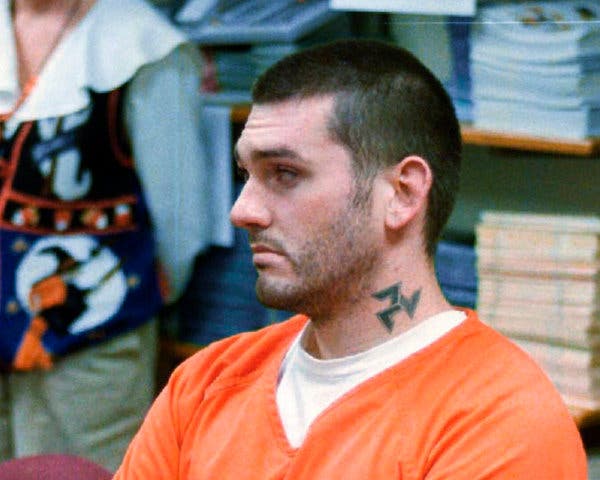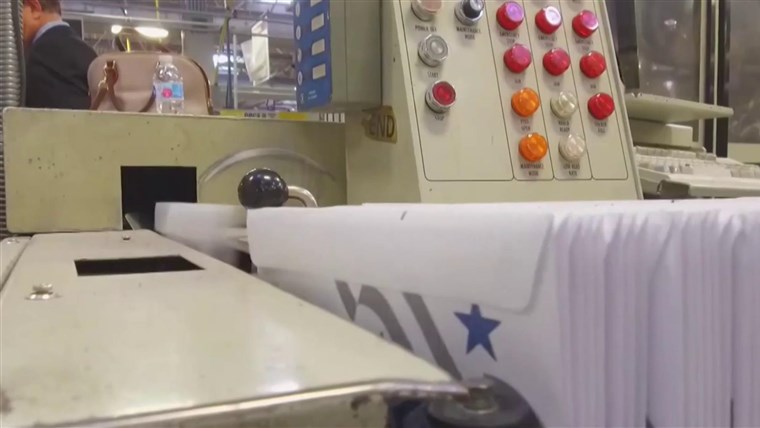Advertisement
A district court in Washington, D.C., had put the execution of Daniel Lewis Lee on hold hours before it was to be carried out. The Supreme Court cleared the way in a late-night, unsigned ruling.

By Hailey Fuchs
WASHINGTON — The Supreme Court early on Tuesday cleared the way for the Justice Department to carry out the first federal execution in more than 17 years, removing a federal judge’s hold.
The judge had stayed the execution hours earlier, saying on Monday that questions about the constitutionality of the lethal injection procedure the government planned to use had not been fully litigated.
The Justice Department immediately appealed the ruling, by Judge Tanya S. Chutkan of the United States District Court in Washington, D.C. Judge Chutkan issued a preliminary injunction against the planned execution of Daniel Lewis Lee, citing the “extreme pain and needless suffering” that could result from the lethal injection protocol the government planned to use.
The Supreme Court delivered an unsigned 5-to-4 ruling, with Justices Stephen Breyer and Sonia Sotomayor dissenting. They were joined by Justices Ruth Bader Ginsburg and Elena Kagan, the other members of the court’s four-member liberal wing.
The back-to-back decisions were the latest in a flurry of court rulings surrounding the case of Mr. Lee, the first of three federal death row prisoners scheduled to be executed this week. Mr. Lee was scheduled to be executed at 4 p.m. on Monday at the federal penitentiary in Terre Haute, Ind.
Mr. Lee, 47, a former white supremacist who has denounced his ties to that movement, was set to be executed for his part in the 1996 killing of a family of three. The Trump administration announced its intention last summer to resume the federal death penalty after a nearly two-decade hiatus and to employ a new procedure to carry it out — a single widely available drug, pentobarbital — after several botched executions by lethal injection renewed scrutiny of capital punishment.
But the government has been fighting off legal challenges to the single-drug technique. Last month, the Supreme Court let stand an appeals court ruling that found the government was in compliance with the Federal Death Penalty Act of 1994, which requires executions to be carried out “in the manner prescribed by the law of the state in which the sentence is imposed.” Judge Chutkan had found the government in violation of the law.
In her ruling on Monday, Judge Chutkan wrote that lethal injection by pentobarbital could expose the inmates to the risk of flash pulmonary edema, or the rapid buildup of fluid in the lungs that resembles the feeling of drowning or asphyxiation. Before the inmates could be put to death, the judicial system must decide whether the protocol violates their protections against cruel and unusual punishment, she ruled.
“The government has been trying to plow forward with these executions despite many unanswered questions about the legality of its new execution protocol,” said Shawn Nolan, a lawyer for one of the men scheduled to be executed this summer, in a statement.
The Justice Department has repeatedly invoked the justice owed to the murder victims to underscore the need for a speedy execution for the four men scheduled to die this summer.
Mr. Lee’s trial judge, his prosecutor, and several members of the victims’ family pleaded with the government to commute his sentence to life in prison without the possibility of parole.
Last week, family members of his victims sued the Justice Department, arguing that traveling to the execution site would put them at risk of contracting the coronavirus. A district court agreed and granted a temporary delay in the execution. Late Sunday, the U.S. Court of Appeals for the Seventh Circuit reversed that decision and cleared the way for the execution to proceed.
Mike Ives contributed reporting.

